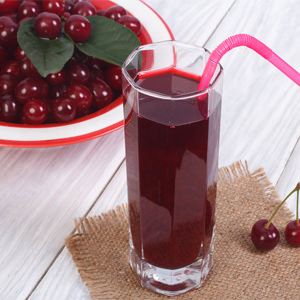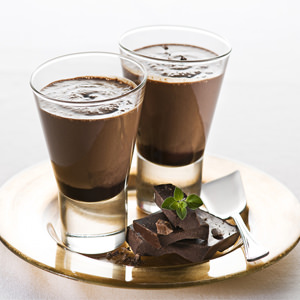6 Foods You Should Eat After Workout for Best Performance
While working out is always important with regards to living a fit and healthy lifestyle, it isn’t the only component.
Your body requires fuel for peak efficiency, which is key when it comes to the efficiency of the exercises you do.
Most people devote all their attention to what they eat before and after a workout and forget that what is eaten afterwards is just as important.
If you want to give yourself a performance boost and help push you over the edge towards achieving your goals , you need to be eating or drinking one of the six following types of foods.
#1 Water
One of the most important factors to consider immediately after a workout is your hydration level. As a general rule, people should ingest at least 16 to 20 ounces of water immediately after a workout.
Water level is very important to the body’s recovery process, which is when it begins to repair the small tears that occur in a person’s muscles during intense periods of physical activity.
Working out too hard and failing to maintain proper hydration will result in quickly losing muscle instead of gaining it.
Heavy sweating during weight training also causes the body to lose electrolytes and minerals, two components that are important in generating new muscle mass. Hydration issues can be increased if you’re exercising during hot and humid weather, which results in a person sweating more than normal.
Water also has benefits during a workout. If you’re feeling sluggish and fatigued during exercise, it is normally due to a combination of low water levels and the activities of stored carbohydrates. Drinking enough water will make today’s exercise easier and will help enhance the energy reserves in your body for tomorrow’s workout, as well.
#2 Tart Cherry Juice
The main benefit of drinking tart cherry juice after a workout is that it is high in antioxidants, which helps free radicals that are produced all over your body during physical activity.
Free radicals can lead to inflammation which lead to sore muscles, which results in a person operating at decreased energy levels.
A study conducted in 2010 by the “Journal of the International Society of Sports Nutrition” discovered that a single dose of cherry juice each day can assist in easing sore muscles and other types of inflammation all over your body.
Tart cherry juice is perfect for after a workout but can be harmful if ingested prior.
The juice, while rich in antioxidants, is high in fructose. Fructose is the main sugar found in all types of fruit and is much more time consuming and difficult to digest like the sugars found in other foods and drinks, like sports drinks.
Drinking tart cherry juice right before an exercise can lead to stomach cramps, which would result in less-than-ideal efficiency levels.
These types of fruit juices are relatively high in calories at an average of 480 per 24 ounces, so watch your intake levels and don’t overdo it. A single glass after a workout is all that’s needed to start seeing the benefits.
#3 English Muffins with Avocado
English muffins with avocado are an ideal option for a post-workout snack for a few different reasons. When eating immediately after a workout, it is best to do so within 15 to 20 minutes to quickly replenish muscle glycogen.
The faster a person can replenish stored energy, the faster their body will be able to rebound from physical activity and get ready for the next day.
Because you’re supposed to eat so quickly after a workout for the best results, it can severely limit the amount of available options.
Experts recommend eating small snacks that can be quickly prepared that only have between 200 and 250 calories. English muffins with avocado are an efficient way to take in carbs following physical activity.
Avocados are particularly important because they are rich in antioxidants which help relieve the stress added to the body during weightlifting and other activities.
Intense physical exercise like running or sports conditioning creates damage to the body’s cells known as “oxidative damage.”
Always have the necessary post-workout snack, even if you don’t think you have the time. Skipping calorie intake will stifle the body’s ability to build muscle. Additionally, stored fuel cells will not be replenished, which can make a person feel sluggish and fatigued when the next exercise rolls around.
#4 Store-bought Chocolate Milk
During exercise, the energy cells stored in your muscles (also referred to as glycogen stores) are depleted. These glycogen stores promote the reconstruction of muscles during a post-workout cool down period, which leads to new muscle growth.
Carbohydrates are the main source used to replenish glycogen stores, especially in workouts that last for more than an hour in a single session. Store-bought chocolate milk is high in carbohydrates and tastes better than a drink labeled “carb only.”
The drink has a number of other health benefits that will aid your body before, during and after a workout. Milk is high in both slow digesting and fast digesting proteins, which makes a single glass of milk a healthy alternative to a supplement like protein powder.
Drinking milk or chocolate milk on a regular basis allows a person to push themselves harder for longer periods of time.
Whey and casein are the two main types of proteins found in chocolate milk.
Casein in particular makes up as much as 80% of the total proteins in milk obtained directly from cows and is also between 20 and 45% of the total proteins found in human milk. In addition to the supply of carbohydrates, casein is also responsible for a large number of amino acids and calcium, both of which are beneficial to people who exercise on a regular basis.
#5 High Protein Food Sources
When selecting food for a post-workout snack or meal, all options you consider should be high sources of protein. Protein is found in a number of foods that are easy to prepare immediately after exercise.
Chicken breast, for example, provides 17 grams of protein for every 100 grams of chicken. A half breast of turkey or chicken provides as many as 92 grams of protein.
The overall protein-to-calorie ratio is one gram of protein per 4.5 calories for both turkey and chicken breast. Chicken thighs provide the highest amount of protein for the smallest serving sizes.
Fish options like halibut, salmon or tuna are also high in protein. There are 26 grams of protein in every 100 grams of fish.
For every three-ounce fillet that you eat you will get 22 grams of protein. The overall protein-to-calorie ratio for fish of all types is one gram per 4.5 calories ingested.
Fish that are healthy choices for a post-workout meal include sole, cod, perch, snapper, tilapia and others. Tuna, salmon, snapper and halibut all have roughly equal amounts of protein at 22 grams per fillet.
Low-fat mozzarella or cottage cheese is also an excellent source of protein that makes a straightforward snack. The protein-to-calorie ratio is one grams per 4.7 calories. In every one-ounce slice of cheese that you eat you will get nine grams of protein.The protein in a 100-gram cup of cottage cheese is 32 grams.
When picking out cottage cheese, it is important to make sure you are buying a variety low in fat. While the protein content will always be high, you run the risk of adding too much fat to your diet, which can slow muscle recovery after a workout.
#6 Homemade Recovery Drinks
If you aren’t feeling like eating heavy food so soon after a meal, consider going with a homemade recovery drink made from a combination of milk, yogurt and a fruit like bananas.
The reason it is important to eat so soon after completing a workout is because it is when your body’s muscles are the most receptive.
Between 30 and 60 minutes after a workout, increased enzyme activity makes the body more efficient than normal at storing glucose, which will then be used to replenish its energy reserves to get you ready for the next bout of physical activity.
More protein than average is also built in fatigued muscles during these periods.
The benefits inherent in bananas include large amounts of both magnesium and potassium, both of which are used to promote the healthy function of muscles.
Additionally, milk and yogurt provide both carbohydrates and protein when your body needs them the most. A regular-sized glass of a homemade recovery drink is all you need to start feeling the benefits that the ingredients have to offer.


















